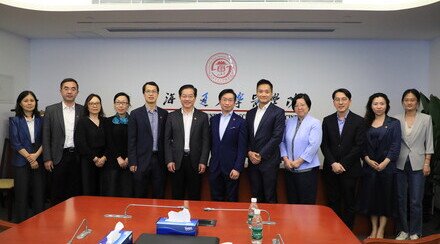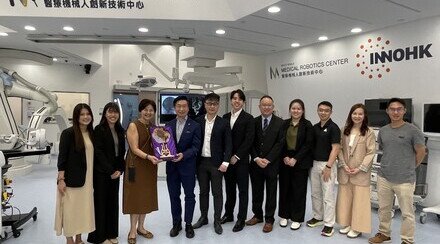
Cell Biology Department, Yale University
Name: CHUNG, Hae Jon
Attachment: Cell Biology Department, Yale University
Period: 01 June - 10 August 2016
During the summer of 2016, I spent ten weeks in Professor Sandra Wolin’s laboratory in the Boyer Center for Molecular Medicine in Yale University under the GPS overseas research internship program. The Wolin Lab specializes in investigating the pathways related to RNA degradation, particularly mechanisms involving the Ro 60 kDa protein. Ro 60 kDa is implicated in many autoimmune diseases such as Sjogren’s syndrome, and while it is clinically significant, its functions and pathways in eukaryotic cells are still largely unknown. My project was to determine the exoribonucleases implicated in the Ro60-dependent RNA degradation pathway in human cells, which is the first step in further examination of the mechanism in mammalian cells.
By conducting this project, I gained knowledge on the Ro-dependent RNA degradation pathway. I was able to appreciate the complexity involved in the control of gene expression while reading scientific articles on related topics and correlating that to my findings. By combining results presented in different articles with my data, I was able to build a multifaceted understanding of intricate and enigmatic metabolic pathways.
Throughout the ten weeks, I learned techniques ranging from Western Blot to real-time PCR as well as solve problems related to scientific experiments. My supervisor kindly showed me the different scientific research methods and patiently corrected my techniques. These are techniques frequently implemented in biomedical research, especially in the area of molecular biology which I am interested in further exploring.
Other than the scientific aspects of my project, I also treasure the interactions I had in Yale in a research environment. The members of the lab were all willing to show and teach me a range of techniques they used in their experiments, as well as tricks and precautions when practicing different methods. They were very enthusiastic about their research and had taught me immensely using their years of experiences. In addition, they would also share their expertise in team meetings to aid the research projects of others, either by suggesting possible future directions or by noting ways to improve the data to generate publishable results. The collaborative effort of the lab members created an environment that was conducive to both learning and furthering scientific knowledge.
I must thank Prof. Sandra Wolin, all the wonderful people in the Wolin Lab, and the Faculty of Medicine at CUHK for this valuable and fruitful experience. The internship was very memorable, and not only allowed me to immerse in a diverse culture with top researchers, but also strengthened my interest in molecular medicine and its clinical applications. The skills and knowledge I have gained during the internship will definitely support me in my future efforts in research, as I aspire to continue on the path of research in genetics and its translation into the clinical setting.








